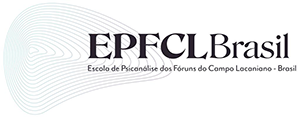Narcissism and its echoes
DOI:
https://doi.org/10.31683/stylus.v0i36.229Keywords:
Narcissism; Identification; Topology; Homotopia.Abstract
Drawing from the myth of Narcissus its structural components, this article aims to critically debate some aspects on the degeneration of the contemporary social bond. The presence of paternal and drivers dimensions in the myth and the tragic destiny of the Greek hero is seen as crucial to support the arguments placed here. Narcissus was the son of Cephus (a river). The waters (as mirror-Other) were laid from the beginning of the narrative. The elements of the gaze and the voice (as libidinal objects) appear in a reified way: the gaze that imprisons and the voice that emerges in petrified and deep alienation (echolalia). The ethical orientation of an analysis, which aims to empty the meaning and sustain the gap of the Real, would be a counterpoint to the narcissistic influx and to the voracity of the spectacles of meaning. The present work ends with a proposal for the distinction between what it would be an end of analysis through what can be designated as narcisic identification (when the links of the symptom and the Imaginary are tied by homotopia) and when it happens by a void, enigmatic, there is an identification of the sinthome (which puts into continuity the Real and the sinthome).
Downloads
References
Brandão, J. S. (2013). Mitologia Grega (vol. II) (22ª. ed.). Petrópolis: Vozes.
Freud, S. (1914/1996). Sobre o narcisismo: uma introdução. (Jayme Salomão, Trad.). In J. Strachey (Ed.). Edição Standard Brasileira das Obras Psicológicas Completas de Sigmund Freud (Vol XIV, pp. 81-110). Rio de Janeiro: Imago Editora.
Gianesi, A.P.L. (2011). Causalidade e desencadeamento na clínica psicanalítica. São Paulo: Annablume.
Lacan, J. (1948/1998). A agressividade em psicanálise. In J. Lacan. Escritos (pp. 104-126). (Vera Ribeiro, Trad.). Rio de Janeiro: Jorge Zahar Ed.
Lacan, J. (1975-1976/2007). O seminário, livro 23: s sinthoma. (Sergio Laia, Trad.). Rio de Janeiro: Jorge Zahar Ed.
Lacan, J. (1976-1977). O seminário, livro 24: l’insu que sait de l’une-bévue s’aile à mourre. Inédito.
Ovídio. (8 d.C./2017). Metamorfoses. (Domingos Lucas Dias, Trad.). São Paulo: Editora 34.
Soler, C. (2017). Nova economia do narcisismo. (Maria Vitori Bittencourt, Trad.). Stylus Revista de Psicanálise (34). Rio de Janeiro: EPFCL-Brasil, pp. 27-44.
Tomimatsu, M. F. (2017). Kazuo Wakabayashi: um artista imigrante. São Paulo: Porto de Ideais.
Downloads
Published
How to Cite
Issue
Section
License
Ao encaminhar os originais, os autores cedem os direitos de publicação para STYLUS.
Os autores assumem toda responsabilidade sobre o conteúdo do trabalho, incluindo as devidas e necessárias autorizações para divulgação de dados coletados e resultados obtidos, isentando a Revista de toda e qualquer responsabilidade neste sentido.



